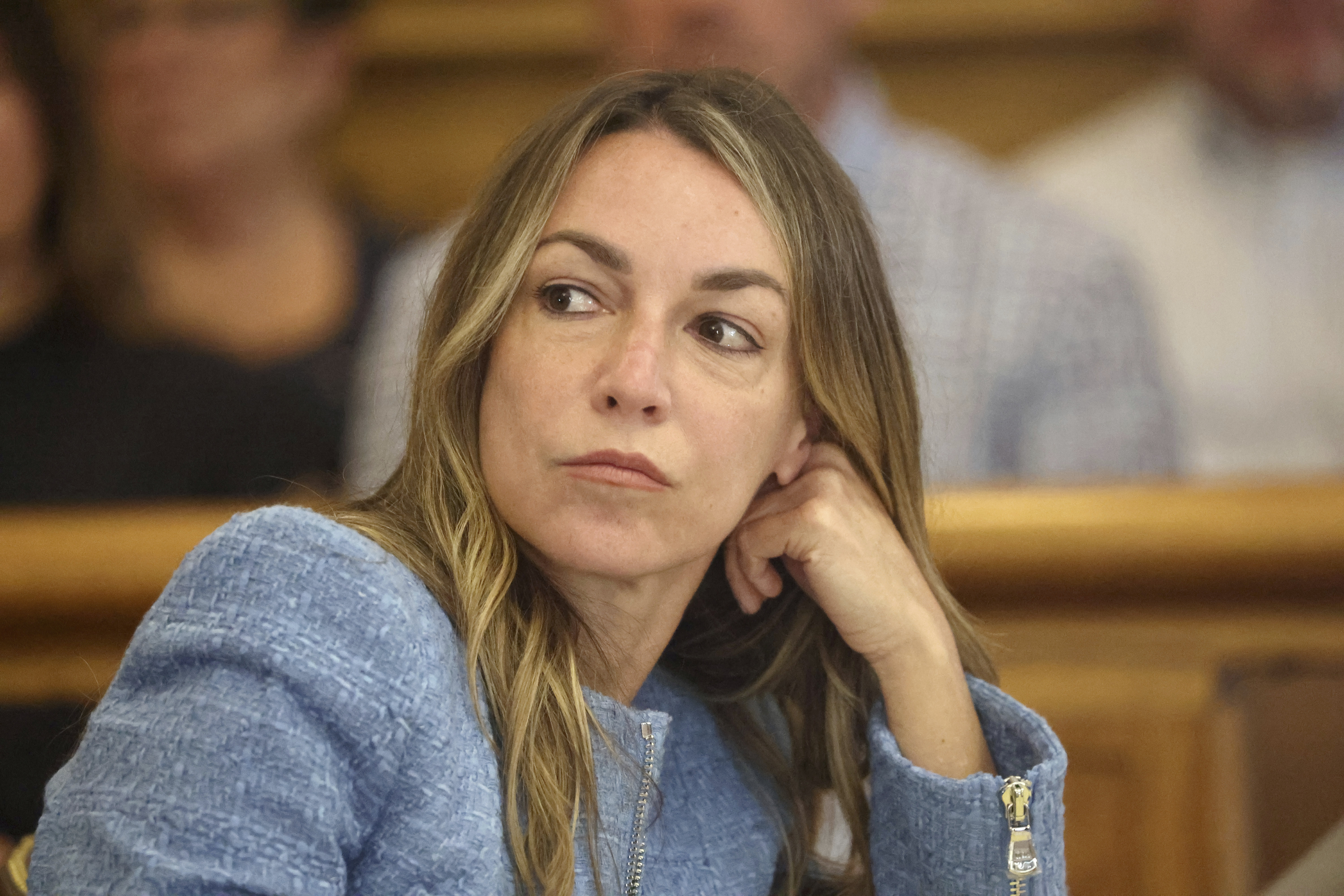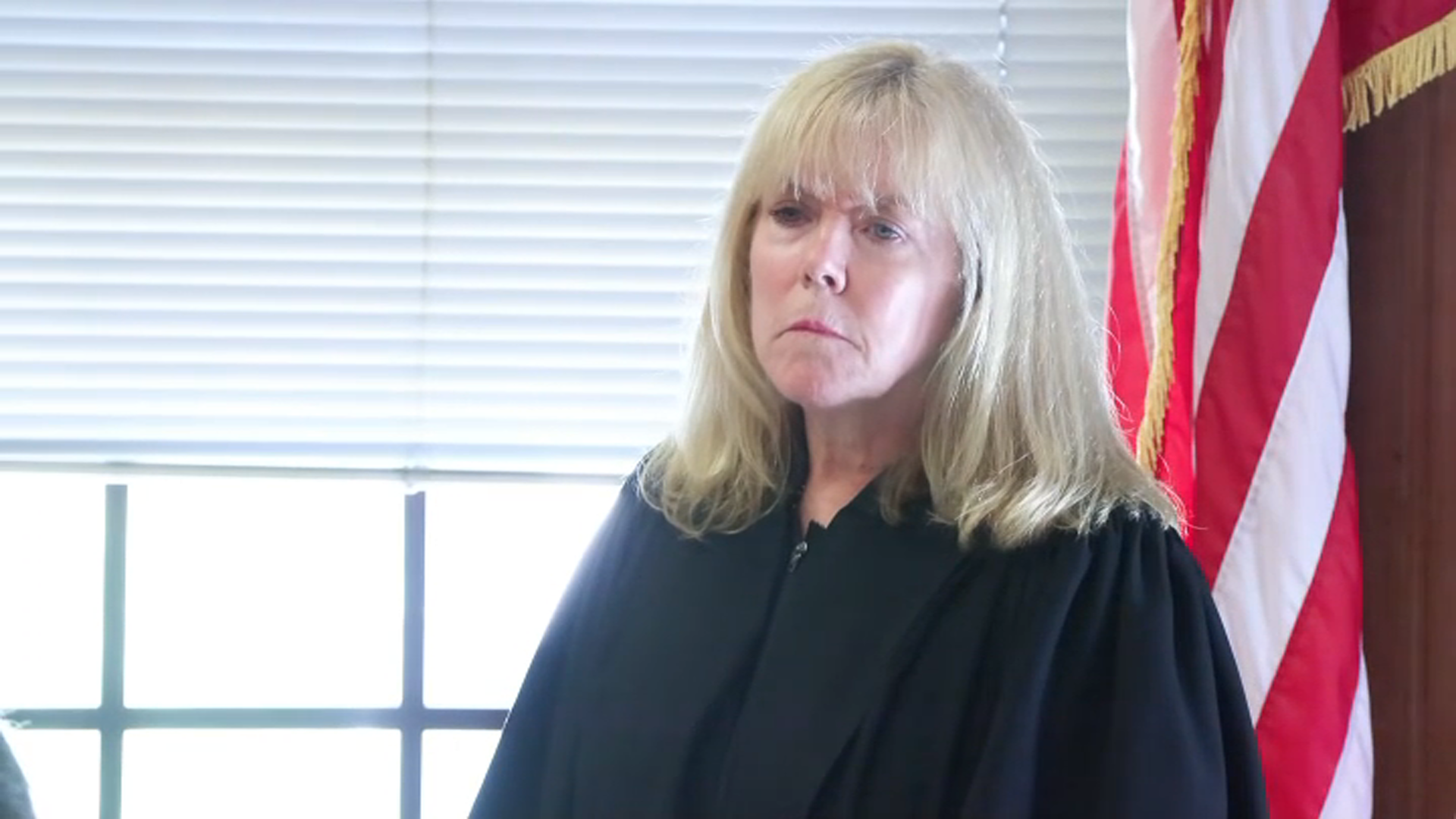A mistrial was declared in the Karen Read murder trial after five days of jury deliberation, extending one of Massachusetts' most closely watched legal sagas in years by weeks or months.
Judge Beverly Cannone made the announcement in Norfolk Superior Court Monday, after reading out a note from the jury's foreman that said, "to continue to deliberate would be futile." The note said that consensus within the group was unattainable due to different factions' deeply held beliefs.
WATCH ANYTIME FOR FREE
Stream NBC10 Boston news for free, 24/7, wherever you are. |
Read had pleaded not guilty to the charges brought by the commonwealth over the killing of her boyfriend, Boston Police Officer John O'Keefe.
Get updates on what's happening in Boston to your inbox. Sign up for our News Headlines newsletter.
Just hours after the mistrial was declared, Massachusetts State Police announced that Trooper Michael Proctor — the lead investigator who came under fire after testifying about inappropriate texts he had sent about Read and the case — had been relieved of duty.
"Upon learning today's result, the Department took immediate action to relieve Trooper Michael Proctor of duty and formally transfer him out of the Norfolk County District Attorney's Office State Police Detective's Unit," Col. John Mawn, interim superintendent of the Massachusetts State Police, wrote in a statement. "This follows our previous decision to open an internal affairs investigation after information about serious misconduct emerged in testimony at the trial. This investigation is ongoing."
The result comes after 29 days of testimony in which more than 650 exhibits were entered into evidence and 74 witnesses were heard. Read's next court date is in about three weeks in Norfolk Superior Court.
Watch the Karen Read trial live on nbcboston.com, NECN, NBC Boston streaming platforms (including Roku, Peacock and Samsung TV) and NBC10 Boston's YouTube page. Every night of the trial at 7 p.m., come back for analysis and more.
Email questions to canton.confidential@nbcuni.com.
Shortly after the mistrial was declared, the Norfolk District Attorney's Office announced that they intend to re-try the case against Read.
The statement also thanked "the O’Keefe family for their commitment and dedication to this long process. They maintained sight of the true core of this case – to find justice for John O’Keefe."
Speaking outside of court, Read's lawyers cheered the mistrial declaration, saying the prosecution couldn't prove their case.
"This is what it looks like when you bring false charges against an innocent person," Alan Jackson said, going on to say that the team would continue fighting.
NBC10 Boston approached Proctor and his wife, Elizabeth, outside their Canton home Monday to seek comment about the mistrial.
Both told reporter Kathy Curran to get off their lawn while she was on a public street.
"I fully support my husband," Elizabeth Proctor said as they were walking inside. "Karen Read is a murderer."
A short time later, state police made their announcement about the action it was taking against Michael Proctor.
What the Karen Read jury said in court
The jury sent in two notes Monday reporting that they were deadlocked, the first around 10:45 a.m.
"We find ourselves divided by fundamental differences in our opinions," the jury said in the note, which Cannone read in court. "The divergence in our views is not rooted in a lack of understanding, but deeply held convictions that each of us carry ultimately leading to a point where consensus is unattainable."
Cannone then delivered the jury Tuey-Rodriguez instructions, which are often read to juries that are unable to reach a unanimous decision. The instructions tell the jurors to trust in their ability to judge the case and each juror to reconsider their beliefs.
Before the jury received the instructions, Cannone heard arguments from both sides on whether to give the Tuey-Rodriguez instructions, noting, based in part on the note they sent in, that "this has been an extraordinary jury."
Assistant District Attorney Adam Lally, who prosecuted the case, opposed giving the jury additional instructions, saying it was too soon, given they have only been deliberating for 22-23 hours.
"They really haven't even had one hour of deliberation equivalent to each of the days of testimony they've heard," he said. "So while they have been at it for a while, I would submit that based on the evidence and testimony of witnesses and complexity in this case, I would submit they have not done a throughout deliberation up until this point."
Defense attorney David Yannetti, on the other hand, said his view was that it was time for Tuey-Rodriguez.
"They've come back twice indicating essentially that they're hopelessly deadlocked," he said. "They said they've been over all the evidence. At this time they say they have fundamental disagreements of what the evidence means. It's a matter of opinion, it's not a matter of understanding."
Cannone ultimately decided it was time.
Hours later, about 2:20 p.m., the jury's second note came in, and Cannone read it in court, too.
"Despite our rigorous efforts, we continue to find ourselves at an impasse. Our perspectives on the evidence are starkly divided," the note began, explaining that jurors were split, based on their "individual principles and moral convictions," on whether the prosecution had met the burden of proof in the case.
"To continue to deliberate would be futile, and only serve to force us to compromise these deeply held beliefs," the note concluded.
Cannone then said, "I'm not going to do that to you folks. Your service is complete. I'm declaring a mistrial in this case."
The first signs of a hung jury
Legal experts and many members of the public who've been following this trial definitely had felt the jury would find a verdict by last week.
But by midday Friday, the jury sent a note to the judge saying that after an "exhaustive" review of the evidence, they had been unable to reach a unanimous verdict.
After hearing from attorneys on both sides, Cannone sent jurors back to continue deliberations, citing the fact that they have nine weeks of testimony to consider from 74 witnesses, including 657 exhibits.
Legal experts say it's common for judges to send a deadlocked jury back to continue deliberations a couple of times before reading them further instructions laying out what's expected of jurors, even when they cannot agree.
Read's defense team was in favor of reading those instructions on Friday, while the prosecution was not.
"The note doesn't really indicate affirmatively they can't come to a conclusion, it just says that they haven't come to a conclusion through their deliberative process at this time," Lally said.
"They're communicating to the court that they've exhausted all manner of compromise, all manner of persuasion and they're at an impasse," Yannetti said.




